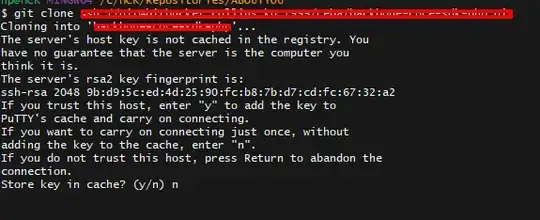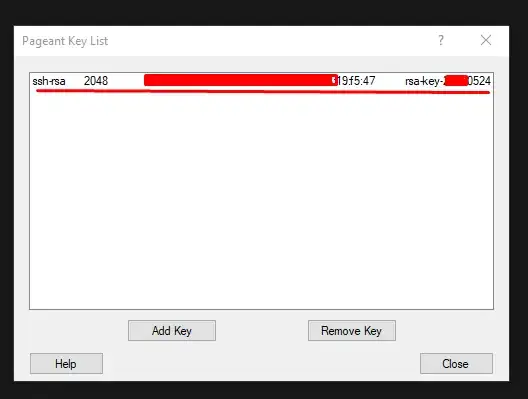I have a problem when trying to use SSH through the terminal. I know that in Windows, you have to use PuTTY to ease this kind of connections, and it works fine when using it to connect remote servers that has the public key version of my key.ppk file.
The problem is that when using PowerShell/Git Bash I can't manage to download anything through SSH. It loads forever in this screen:
I have my key.ppk loaded in Pageant Key list:
Now, this hasn't been an issue until now because I mostly handle my SSH connections through PuTTY sessions and also through a Git client (I use GitKraken), that -according to my knowledge- makes use of Plink.
But now, in a work project I need to provide my SSH private key into a directory so the Docker build can get it and access the company repositories (my public key is already loaded into my BitBucket account). Of course, this isn't working.
So I have two questions:
- How to make my SSH key be available to be used in terminal
- Also, I'd like to know how to get the OpenSSH version of my key in order to stored as an
id_rsaextensionless file in the mentioned repo directory for the Docker build
I know that using PuTTY you can manage to do the latter (Menu Conversion > Export OpenSSH key), but I still don't know if saving it without an extension is enough.
Btw: I've searched a lot and there is a lot of questions about this but none have been helpful.
Thanks in advance.

